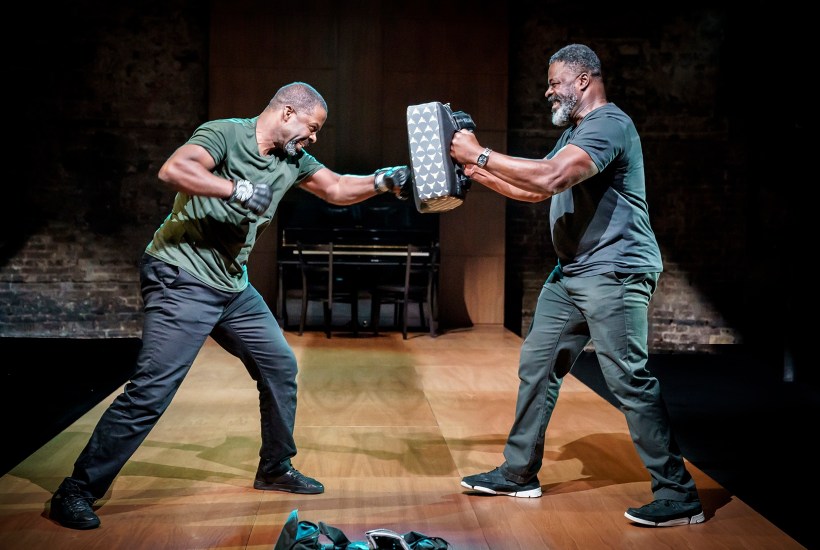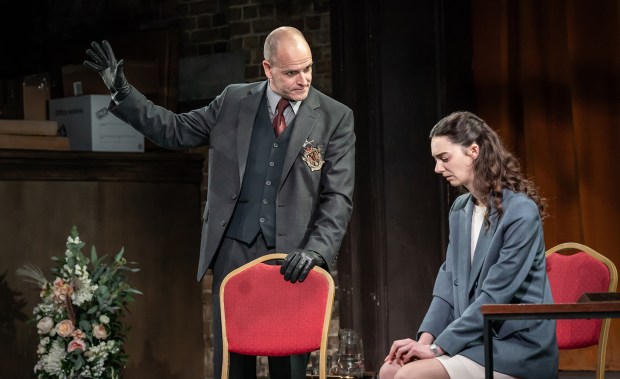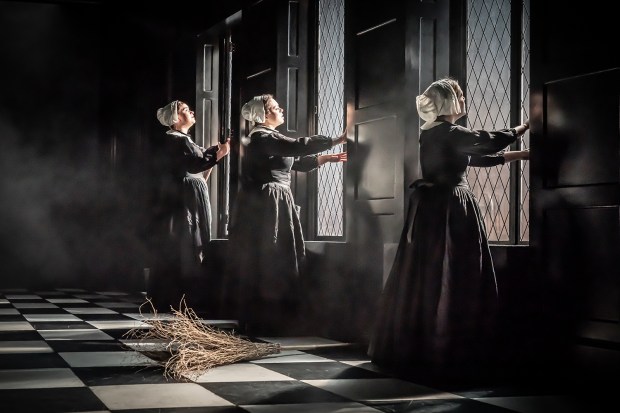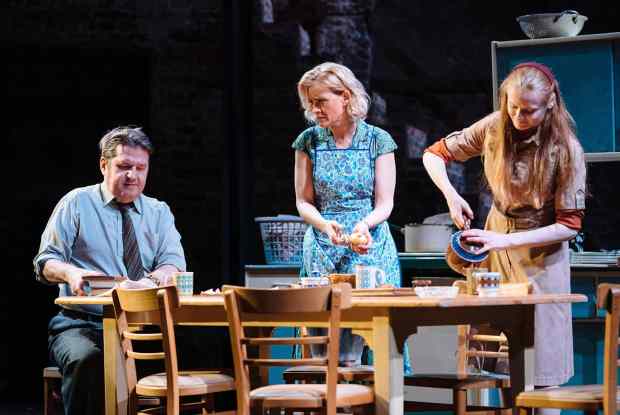The Almeida is fighting back against lockdown with a sprawling family drama about two long-lost siblings. Adrian Lester plays Gilbert Jones, a successful entrepreneur, who runs a clothing business and a stationery shop in London. At his dad’s funeral he meets his half-brother, Benny (Danny Sapani), who was brought up in care but is now married with kids. The two bros become pals. They meet for salads at coffee shops where they swap news about each other’s families. They visit the gym and do stretching exercises while discussing their diets and their problems finding spaces to park. Benny, who appears to be a fitness coach, takes charge of these low-energy workouts. He holds up a scarlet cushion and Gilbert punches it feebly. To encourage more vigour, Benny tells Gilbert to imagine that he’s smashing an annoying female driver in the face. Gilbert punches harder.
The chaps are getting on so well that they buy tickets for a vintage disco. They go to Benny’s house to prepare and Gilbert finds a box of old vinyl discs. ‘Oh my God,’ he shrieks. ‘Records! We can get ready to music.’ Benny pulls out a dressing-up box and they try on spangly 1980s outfits while dancing around and singing rap songs and hits by Prince. Gilbert finds a pink plastic microphone to aid his performance. Benny has one as well. The audience may wonder how Benny, aged 51, came to own two pink plastic microphones. The mystery remains unsolved.
Their friendship deepens when Gilbert invites Benny to join him in a new business venture: Jones and Jones. His plan is to merge his existing shops and to start selling office supplies alongside luxury businesswear. The two ranges will have the same stylistic features. ‘Beautiful, high-end separates in stationery and clothing,’ says Gilbert. He decides to lease a shop in town to launch his brilliant new scheme. But how brilliant is it? The office is dying, the high street is being evacuated, and the whole world is going paperless. Everyone knows this apart from Gilbert and Benny. They sink £800,000 into the venture before a single item has been sold. More blunders follow. Instead of writing a budget or running some adverts, they go into ecstasies when the samples arrive. Benny puts on a business suit and parades up and down like a supermodel. Gilbert ogles him lovingly. A set of silks is delivered and Gilbert fondles them, almost in tears. ‘These swatches of material are the colours of the world in your hand.’
Not surprisingly, the business is less successful than the geniuses had hoped. The play ends with each of them delivering a heartfelt speech about friendship, family and loss. Technically the script has difficulty telling a family story through the lens of male friendship. There are dozens of characters who are mentioned but never seen. Were it not for lockdown, this play would have a cast of 15 or more. But the real snag is that Benny and Gilbert aren’t male characters. They’re women. Everything they say and do has a feminine slant: the salads, the coffees, the low-energy workouts, the casual chit-chat about family problems, the abiding fascination with clothes, fabrics and colours. In real life, a man is extremely wary of appearing feminine while befriending another man. But these two mincers camp it up like mad from the start.
One can see why Adrian Lester took this role. He gets to dance, sing and play the piano. And he delivers a big weepy monologue at the end. Which is his best moment. He has an air of sweetness, grace and nobility that sets him apart from every other actor in his generation. But it seems unlikely that he and Sapani failed to spot the script’s central fault. They must have deliberately concealed it from the writer Lolita Chakrabarti and the director Blanche MacIntyre. That was very naughty of them. Understandable, of course. If the job is there you grab it. Lester had an additional reason not to broadcast the truth about this giddy little romcom. He’s married to the playwright. Still, anything for a quiet life.
The Golden Era of Broadway is a strange beast, a collection of brilliantly performed and superbly lit show tunes with no connecting theme. Freddie Fox sings ‘Willkomen’ and ‘Money’ from Cabaret in a ripped leather greatcoat. He puts his overacting skills to good use and delivers a hectic display of winks, pouts and unneeded hand gestures. He’s watchable but there’s an air of harshness and cruelty about him. He’d make a great Bond villain. Bonnie Langford performs ‘I Get A Kick Out Of You’ in a gorgeous spangly frock the colour of spilt claret. At the end, she leaps on to a grand piano and demonstrates that she’s as limber as a teenage gymnast. Astonishing.
Got something to add? Join the discussion and comment below.
Get 10 issues for just $10
Subscribe to The Spectator Australia today for the next 10 magazine issues, plus full online access, for just $10.
You might disagree with half of it, but you’ll enjoy reading all of it. Try your first month for free, then just $2 a week for the remainder of your first year.














Comments
Don't miss out
Join the conversation with other Spectator Australia readers. Subscribe to leave a comment.
SUBSCRIBEAlready a subscriber? Log in